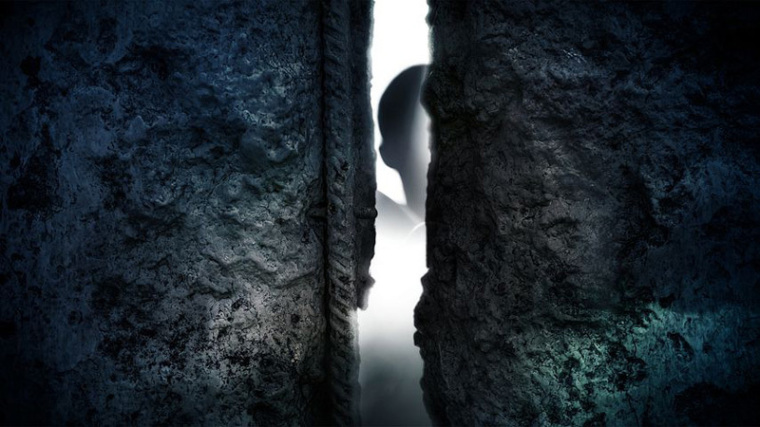
Late 15th century Renaissance polymath Nicolaus Copernicus once said that “To know that we know what we know, and to know that we do not know what we do not know, that is true knowledge.”
Besides being as tongue twisting as Paul in Romans chapter 7, verse 15-20, his thinking follows a long line of philosophical inquiry in to the relation between knowledge and our perceptions of the world around us.
Plato in his Allegory of the Cave describes a picture of people chained to the wall of a cave facing a blank wall for the entirety of their lives. All that which those chained are able to see are the shadows of people and objects passing between their backs and a fire projected onto the wall in front of them.
These shadows represent the reality of the people's mind. Yet as we all know, shadows are but an imitation of that which is real.
They’re not fixed, through the clever placement of objects they can project silhouettes of things that are not really there. They’re dependent on the strength of the light source and are greatly morphed into images that are larger in scale than they really are.
Shadows are like the dreams in which you can never fully open your eyes. Unsatisfying, frustrating, scary and not real. So why do we so easily settle for shadows?
Why is knowledge important to us?
While we could turn to secular examples for the benefits of knowledge, it should really be no surprise that the reason we should as Christians find knowledge to be important is that it is because God finds it important.
“For this very reason, make very effort supplement your faith with virtue, and virtue with knowledge, and knowledge with self-control and self-control with…” (Peter chapter 12, verse 5).
Peter writes of knowledge as the bulwark of virtue which supplements faith and requires self-control to exercise. Further down in verse 8 he gives us a reason for gaining knowledge that extends beyond ourselves:
“For if these qualities are yours and are increasing, they keep you from being ineffective or unfruitful in the knowledge of our Lord Jesus Christ” (Peter chapter 12, verse 8)
It is according to Peter not just for our own good and relationship with God but for the effectiveness of our witness.
The Bible’s strongest advocate for wisdom and knowledge, Solomon himself quotes countless times the importance of gaining knowledge:
“Desire without Knowledge is not good…” (Proverbs chapter 12, verse 2)
He even goes further in the next verse to say that the lack of knowledge used in decision making that leads to bad outcomes makes one's “heart rages against the Lord.”
A relationship with God that does not include the knowledge of him, his word and the world around us is enslavement to ignorance. It is being chained up in a cave, only to see poorly defined and misinterpreted shadows of who God is and what he intends for us.
Shadows to reality
In Plato’s work Meno, another important idea is revealed relating to knowledge. That is the difference between ‘true belief’ and ‘knowledge.’
‘True belief’ according to Plato is believing to know something without ever having really ever experienced or done it. While they may be right about how it is to be done, or the directions of getting there one cannot say that they ‘know’ it.
Only once travelled or done the thing he has ‘true belief’ in, i.e. gained a satisfactory justification for his claim, can this individual have ‘knowledge’ on something.
There is a strangely odd phenomena within the church that illustrates Plato’s thoughts on this belief and knowledge divide. That being a severe growing case of Bible illiteracy. A lack of basic Bible knowledge of dates, facts, stories, analogies and characters.
Many Christians as a result will find their belief in God rests in the category of ‘true belief’ rather than ‘knowledge.’
“Anyone who lives on milk, being still an infant is not acquainted with the teaching about righteousness” (Hebrews chapter 5, verse 13)
Not understanding that we lack ‘knowledge’ of who God is and what he had done for us. For “Solid food is for the mature, who by constant use have trained themselves to distinguish good from evil.” (Hebrews chapter 5, verse 14).
Where Plato’s analogy of those stuck in the cave fails to relate with us today is that we should not be so easily restrained. For free access in the western world to God’s word, books and more education that we can fit into multiple lifetimes has made brittle any chains that would limit us.
What is required then is a willingness and dedication to it. To the hard stuff. To reading and the gaining of knowledge.
Although for myself having had knowledge of God made available to me for so long, I had never consciously made my mind available to it. I am immensely grateful for its patience.
We can settle for a faith that speaks from a vague impression of ‘true belief’ and this is fine, for we’re not saved by our own works. But surely we’re better than that. Maybe we should think as Churchill once did and ask of ourselves in relation to the scriptures:
“How many had he understood? How many had entered his mental composition? How many had been hammered on the anvils of his mind, and afterwards ranged in an armoury of bright weapons ready to hand?” – Winston Churchill
For if “all the words in the Bible are God’s words” then don’t settle for shadows.

Isaac Claasen is originally from Christchurch but grew up in Auckland on the North Shore. If not studying, spending time with friends or watching NBA he is most likely reading a book pretending to be an intellectual.